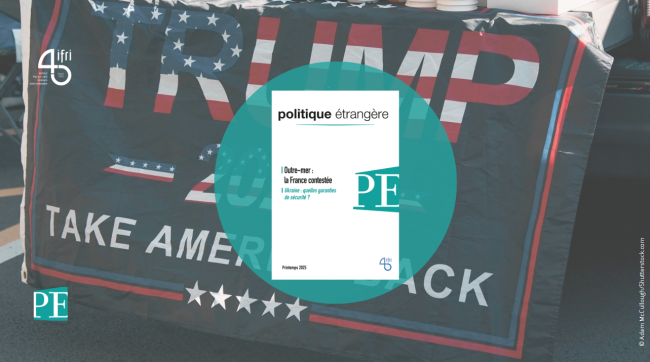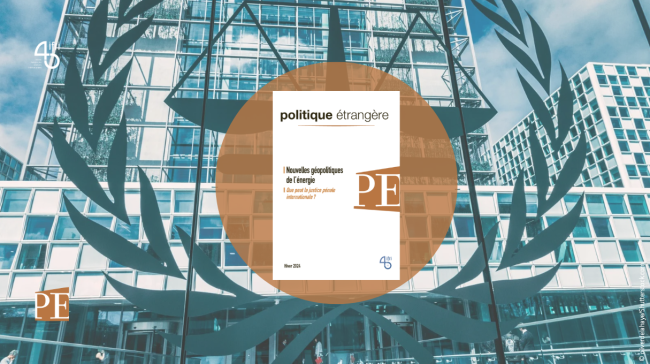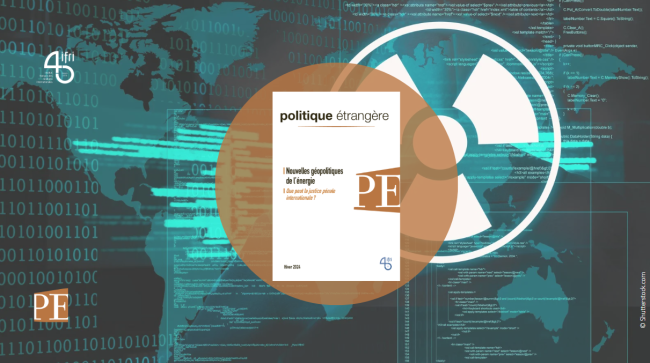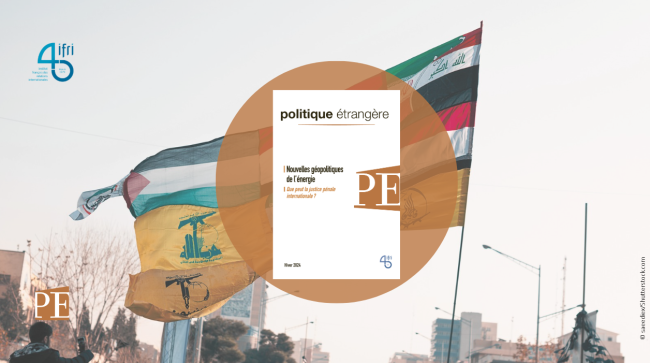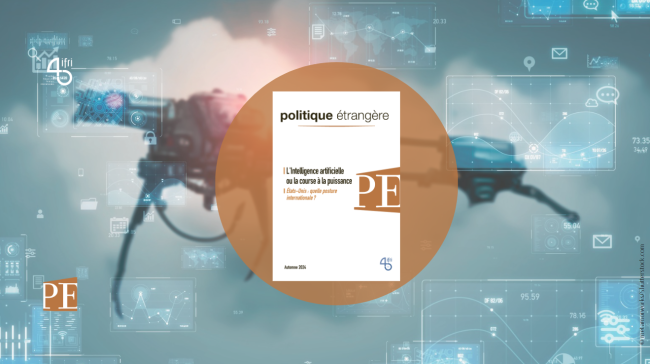Politique étrangère
Trump 2: Challenges for the US Military Posture - Politique étrangère, Vol. 90, No. 1, Spring 2025
The distribution of operational leverage points in US strategy has changed significantly over the past two decades, with a sharp reduction. Donald Trump's distancing and repeated criticism of traditional US alliances threaten to undermine the entire architecture of the US presence in the world, beyond the concrete, real and, in particular, industrial impasses of America's military posture.

The New Geopolitics of Energy
Following the dramatic floods in Valencia, and as COP29 opens in Baku, climate change is forcing us to closely reexamine the pace—and the stumbling blocks—of the energy transition.
International Criminal Justice: A Decisive Moment
Can international criminal justice be a factor in bringing about peace?
From Cuba to Ukraine: Strategic Signaling and Nuclear Deterrence
Strategic signaling—the range of signs and maneuvers intended, in peace time, to lend credibility to any threat to use nuclear weapons—is back.
The Axis of Resistance: Iran's Proxies since October 7, 2023
The term “Axis of Resistance” refers to the coalition of Iranian proxies in the Middle East. Since Hamas's attack on Israel on October 7, 2023, there has been noticeably greater coordination among these groups, at times without the direct involvement of Tehran. Iraq and Syria are important hubs where members of the Axis meet, exchange ideas, and plan actions. Russia, as part of its continuing struggle against the West, has moved closer to Iran and also to its proxies.

Artificial Intelligence, or The Race for Power
Artificial intelligence (AI) is here to stay, and its use is spreading at a rate that is difficult to comprehend.
From Ukraine to Gaza: Military Uses of Artificial Intelligence
The wars in Ukraine and Gaza show us the extent to which artificial intelligence (AI) has become integral to battlefield operations.
Support independent French research
Ifri, a foundation recognized as being of public utility, relies largely on private donors – companies and individuals – to guarantee its sustainability and intellectual independence. Through their funding, donors help maintain the Institute's position among the world's leading think tanks. By benefiting from an internationally recognized network and expertise, donors refine their understanding of geopolitical risk and its consequences on global politics and the economy. In 2025, Ifri supports more than 80 French and foreign companies and organizations.







